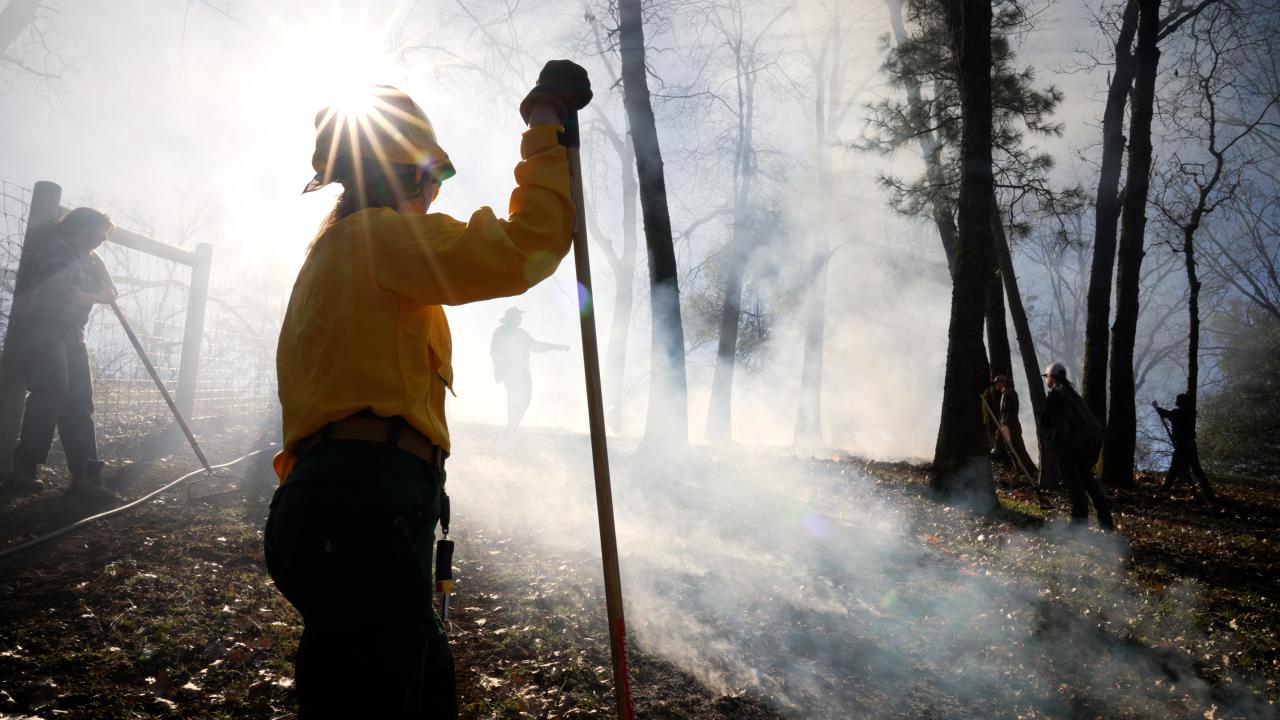Every year, wildfires take the lives of humans and animals, destroy homes and burn thousands of acres of land. People are inspired to take action to prevent further wildfire devastation.
But how can we prevent wildfires? And if prevention isn’t possible, how can we prepare for and adapt to them?
Researchers at UC Davis have made key discoveries on how to prevent and prepare for wildfires.
1. Limit wildfire fuel
An ironic but extremely effective way to prevent wildfires is to fight fire with fire.
Low-intensity burns
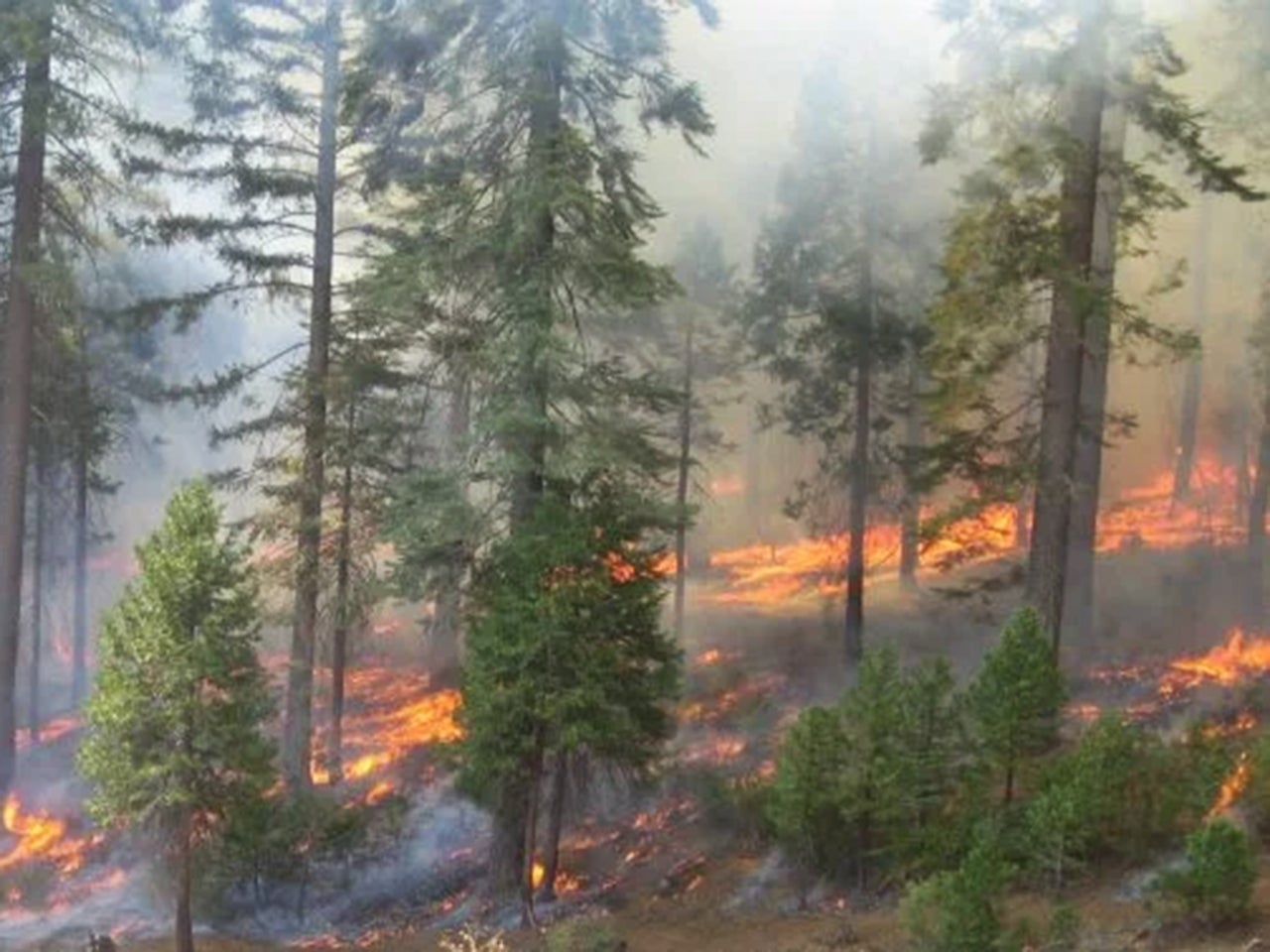
Low-severity burns, like those used in prescribed fires, help remove extra fuel, like small trees and brush, that could easily cause a wildfire to become out of control if left unchecked.
When referring to a fire, low intensity means a low measure of heat release. Low severity means a low level of ecological impact or damage from a fire.
Malcolm North, a forest ecologist and UC Davis adjunct professor working to mitigate California wildfires, says these low-intensity fires are actually healthy for forests. They also prevent too much carbon from going into the atmosphere and exacerbating climate change.
According to North: “Many types of dry forests are much healthier when they regularly have low-intensity surface fires. Most of the Native American practices with cultural burns were along these lines. It’s very beneficial.”
Cultural burns
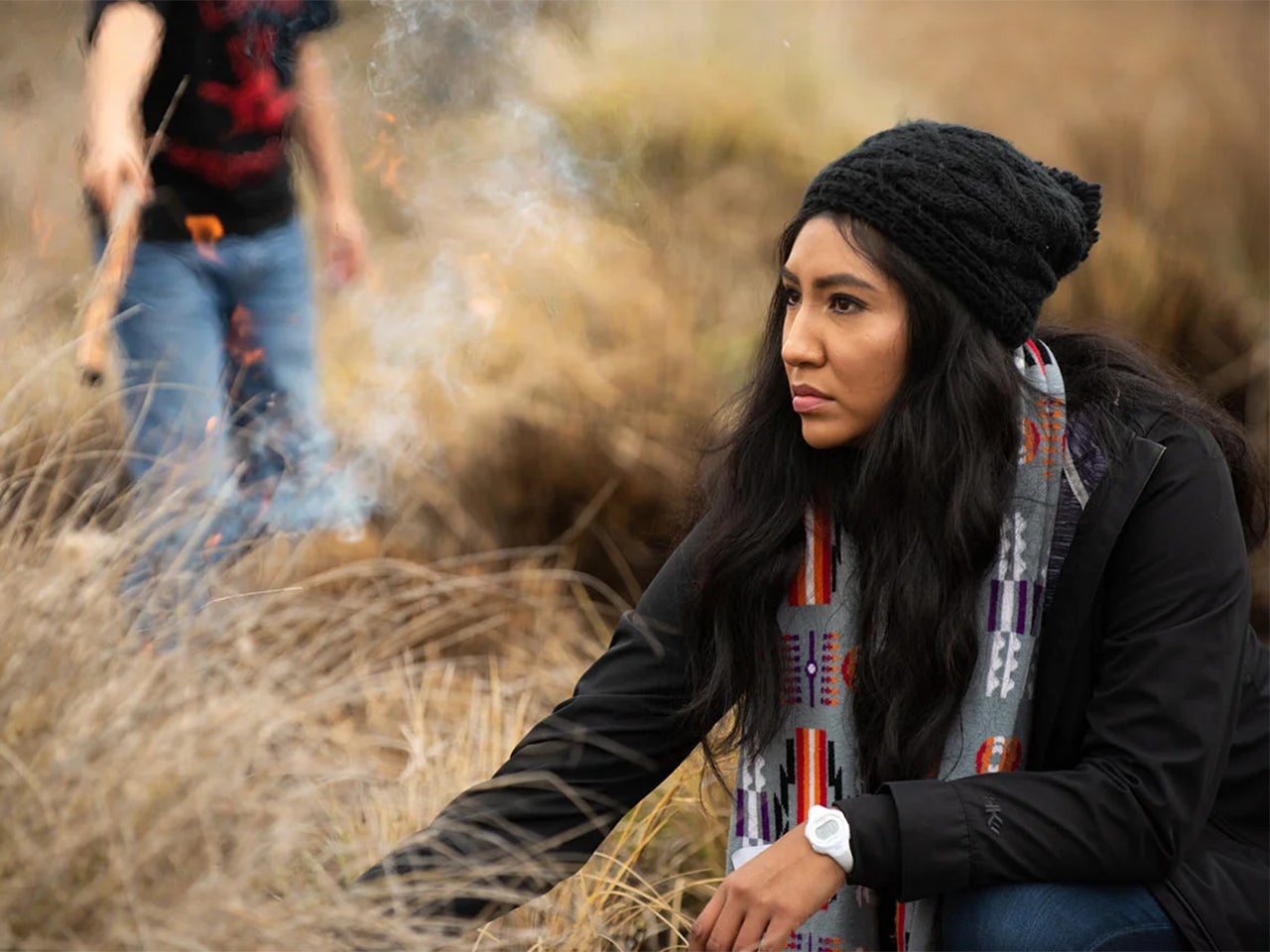
Cultural burns are low-intensity, intentional fires used for thousands of years by Native American practitioners as a land restoration tool.
“We’re not just healing the landscape with this good fire that’s going to regenerate plants and cut back fuel loads and raise the water table. We’re participating in a community of healing,” said Melinda Adams, a former Ph.D. candidate in UC Davis Native American Studies and a member of the San Carlos Apache Tribe.
In the article Melinda Adams: Flame Keeper, she explains how cultural burns are not the same as controlled burning or prescribed fire.
“It’s very tribe-centric and place-specific,” she said. “The lessons and solutions you learn in one area aren’t necessarily translatable to another.”
Prescribed burns
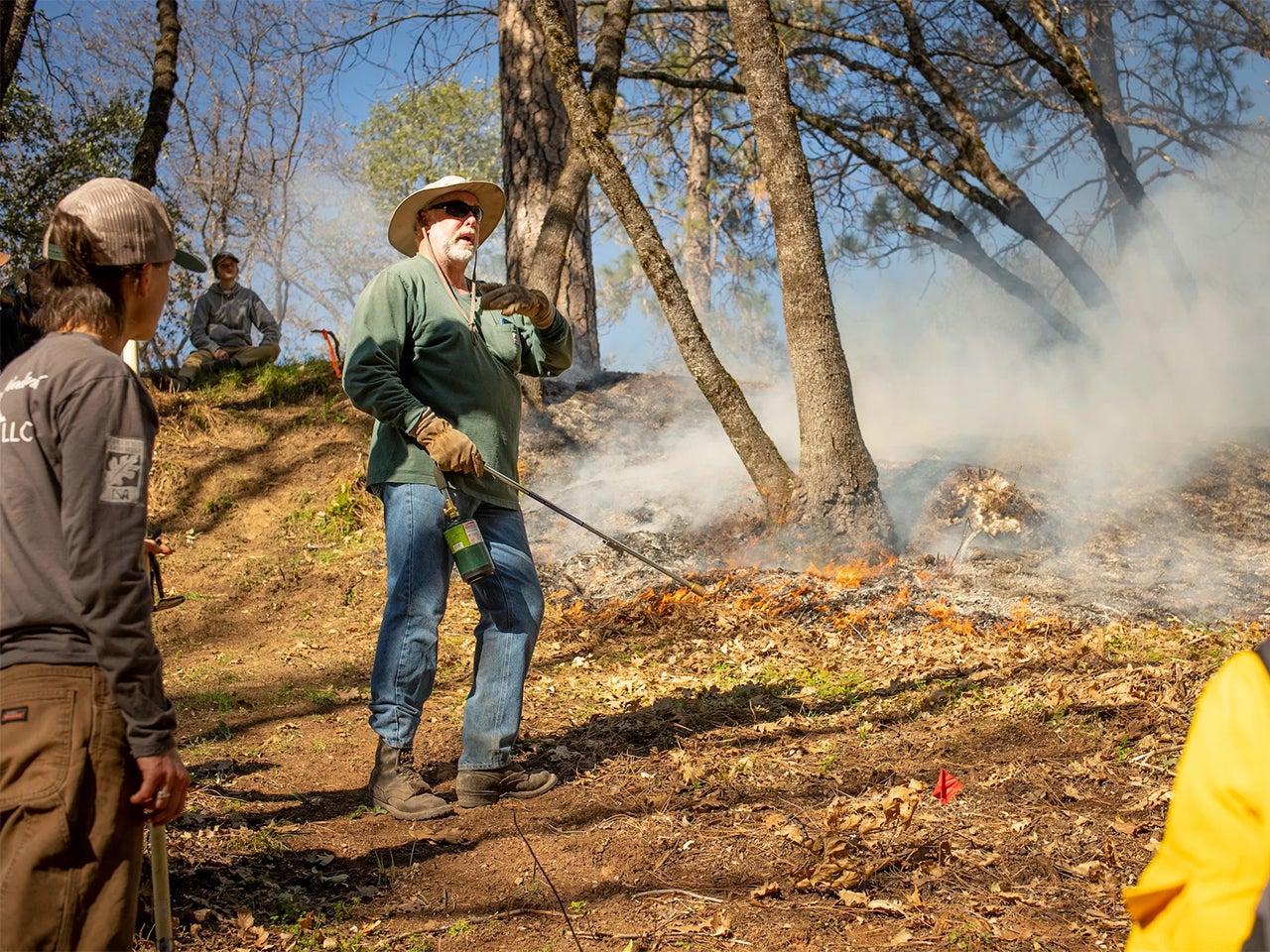
A prescribed burn or controlled burn is a type of low-intensity burn that is intended to boost a forest’s resilience rather than restoration.
“By thinning forests, we can reduce water stress and make forests more resilient to drought and climate change,” said Christina Restaino, a former postdoctoral scholar at UC Davis in the Department of Environmental Science and Policy and lead author of a study on forest structure and climate.
According to the study, thin forests are more sturdy in the face of bark beetle outbreaks as well.
California’s stewardship agreement with the U.S. Forest Service states a commitment to controlled burning 500,000 acres of land annually to help control wildfires.
To achieve this goal, government agencies and neighborhood burn associations are teaching landowners how to do their own controlled burns on their property and how to secure the necessary permits.
2. Create resilient forests
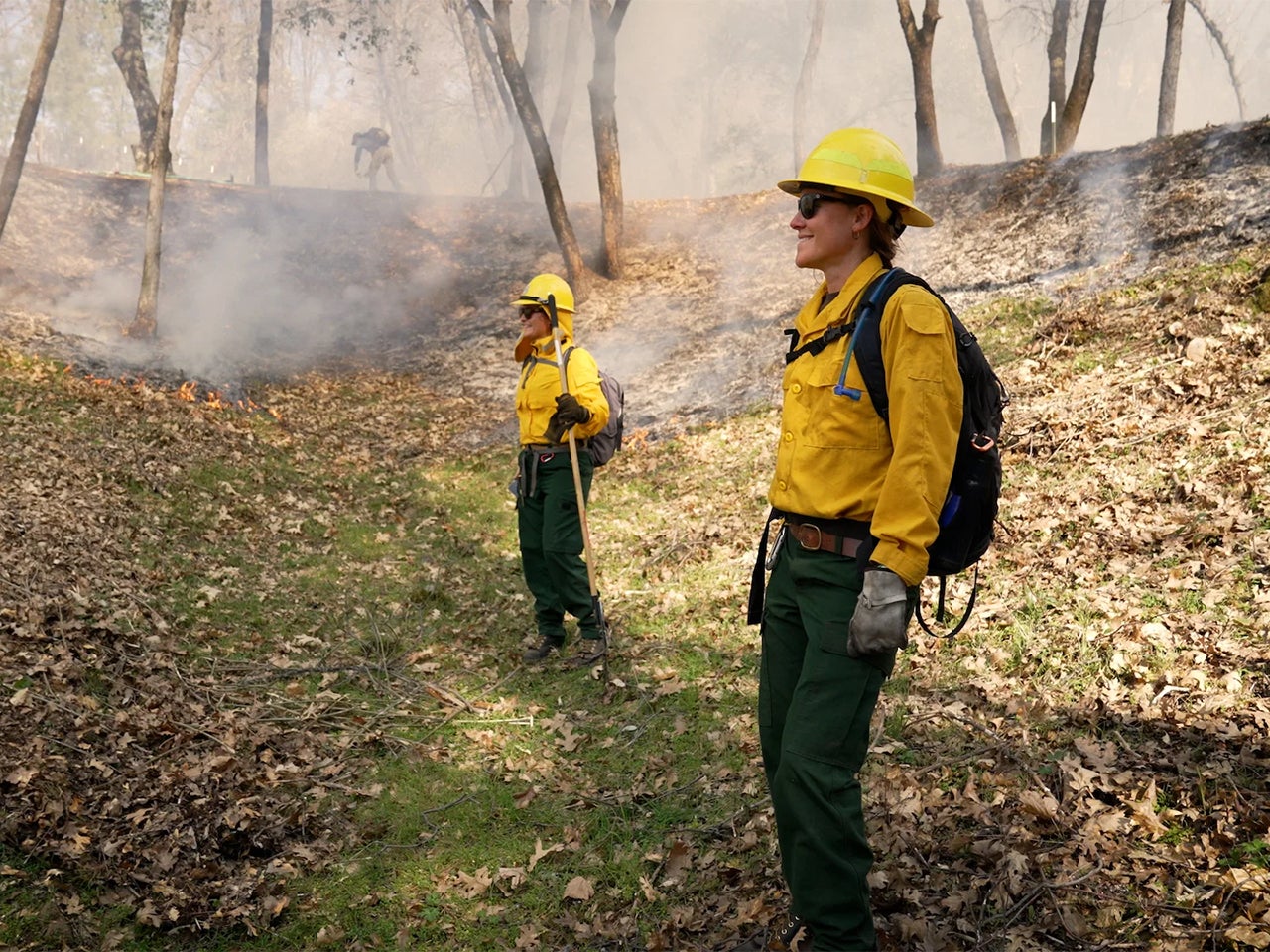
Resilience is hard to quantify, but it was important for UC Davis wildfire researchers to create a definition for their study of frequent-fire forests.
According to the researchers, “Resilience is a measure of the forest’s adaptability to a range of stresses and reflects the functional integrity of the ecosystem.”
The goal of low-intensity burns is to create low-density forests. Low-density forests mean less trees and brush, allowing larger trees to grow stronger and more resilient.
Not only are low-density forests more resilient to severe wildfire, they are also more resilient to drought, bark beetles and climate change.
3. Build wildfire-resistant homes
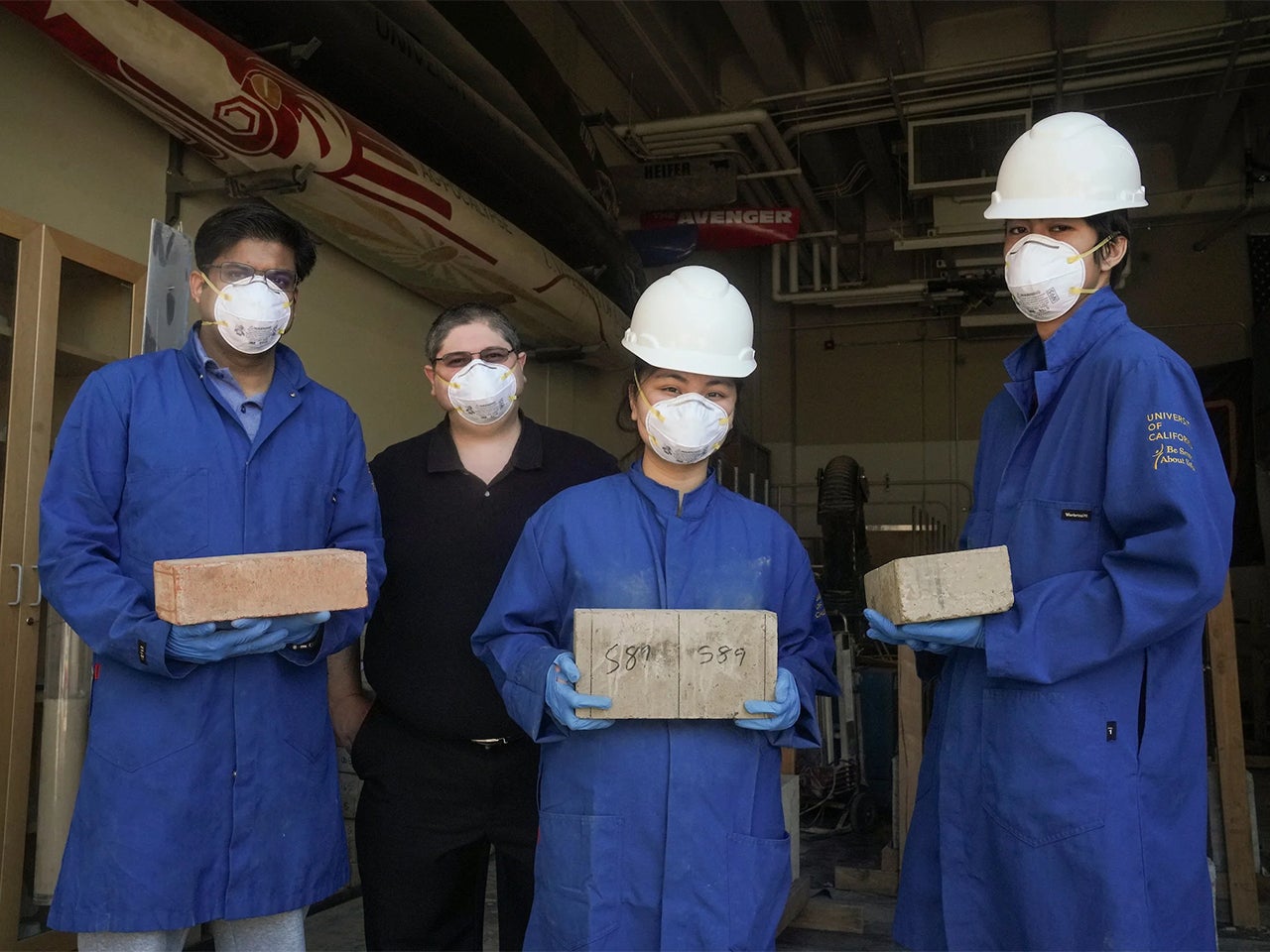
More wildfires are leaving forests and entering urban areas, meaning there’s a higher risk for the destruction of our homes.
“We are going to need about 2 billion new homes in the next 80 years,” said Michele Barbato in a UC Davis article about his research on earth blocks.
Barbato is a co-director of the UC Davis Climate Adaptation Research Center and a professor of structural engineering.
“If we build the way we do now, there’s not a lot that can be done in terms of climate change. It’s just not sustainable,” he said.
Compressed earth blocks vs adobe bricks
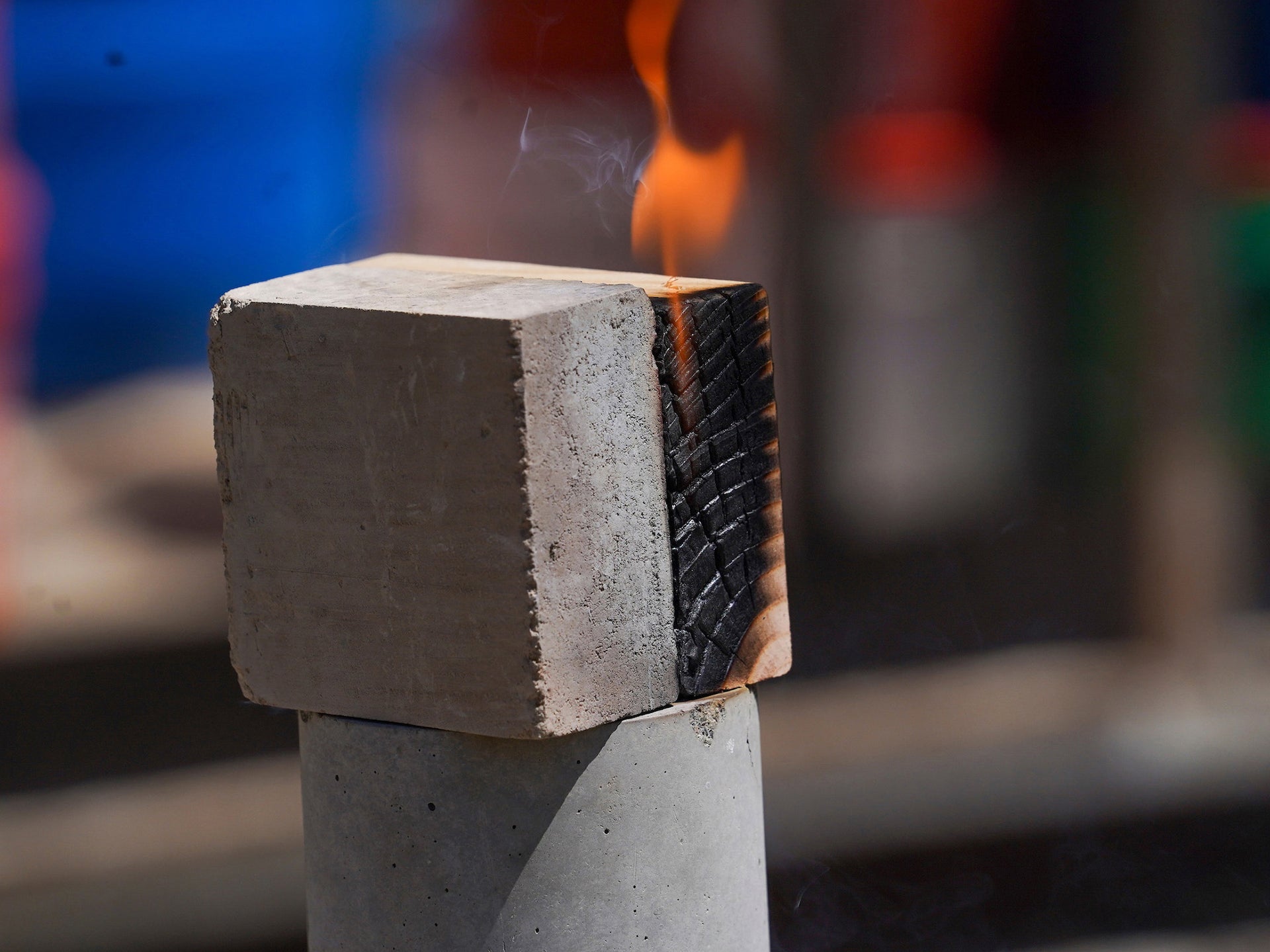
Fortunately, Barbato has spent over a decade researching a wildfire-resistant housing material — earth blocks. Earth blocks are an engineered form of compressed and stabilized mud.
Adobe bricks have been used for over 10,000 years and can also withstand wildfires. But unlike adobe bricks, earth blocks can also survive earthquakes and hurricanes due to their structurally sound engineering.
In Barbato’s testing, he discovered his earth blocks can withstand magnitude 7 earthquakes, Category 5 hurricanes and rate-3 tornadoes. Most importantly, if people were living in a compressed earth block house in these situations, their lives would not be in danger.
Disadvantages of compressed earth blocks
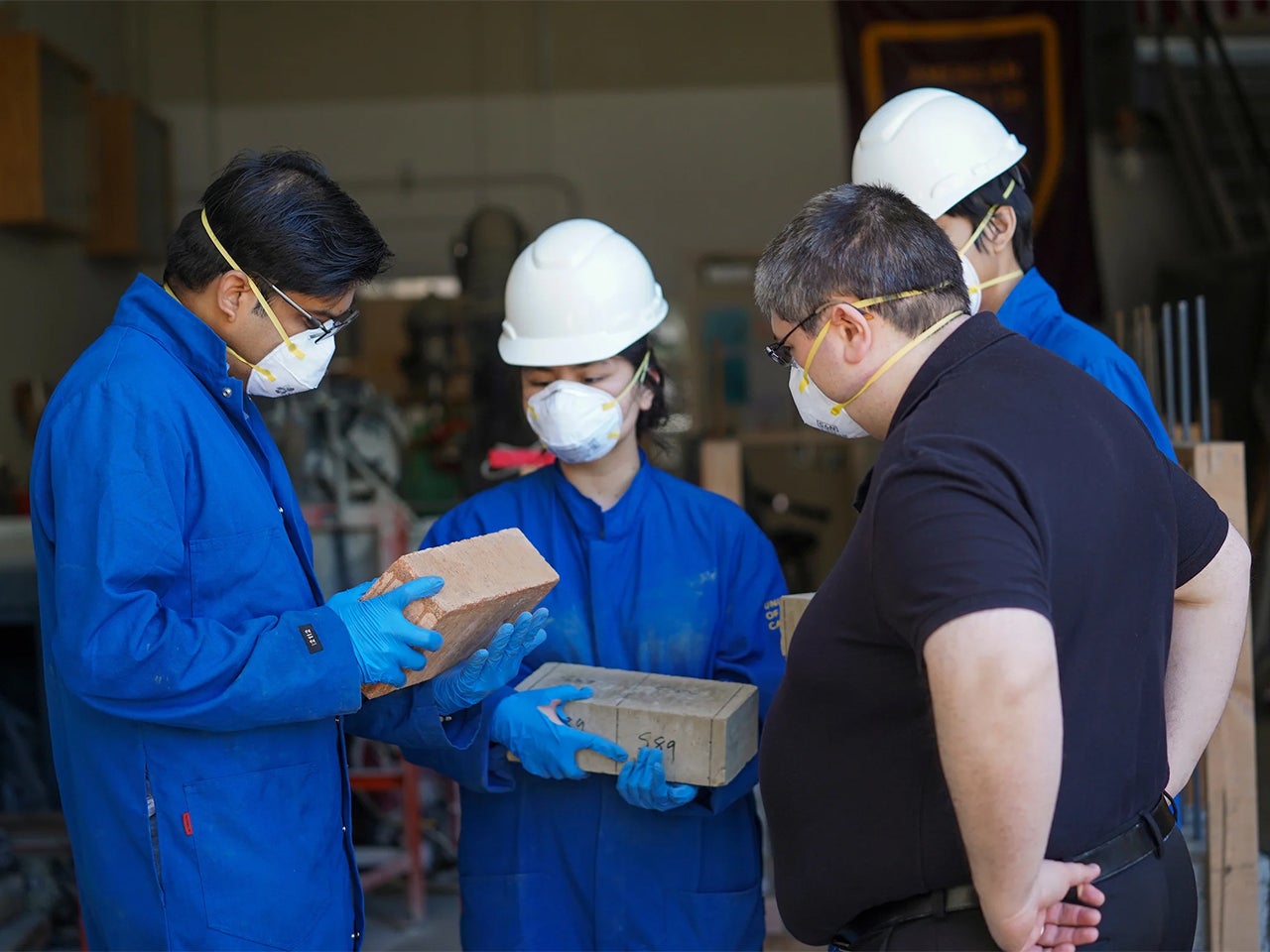
While earth blocks have been proven to withstand wildfires, earthquakes, hurricanes and tornadoes, the public is still hesitant to accept them as housing materials.In the past, poorly designed versions of similar material were advertised to the public, leaving people with a negative perception of them.
Concrete, steel and wood benefit from strong lobbying, but earth blocks don’t have this advantage in policymaking.
And time is needed for Barbato’s team and others to fill engineering knowledge gaps to make earth blocks even safer.
Until these issues are addressed, earth blocks are unlikely to be used in general housing development. However, they are urgently needed because, with the current state of climate change, the housing development system is unsustainable.
Wildfire defensible space
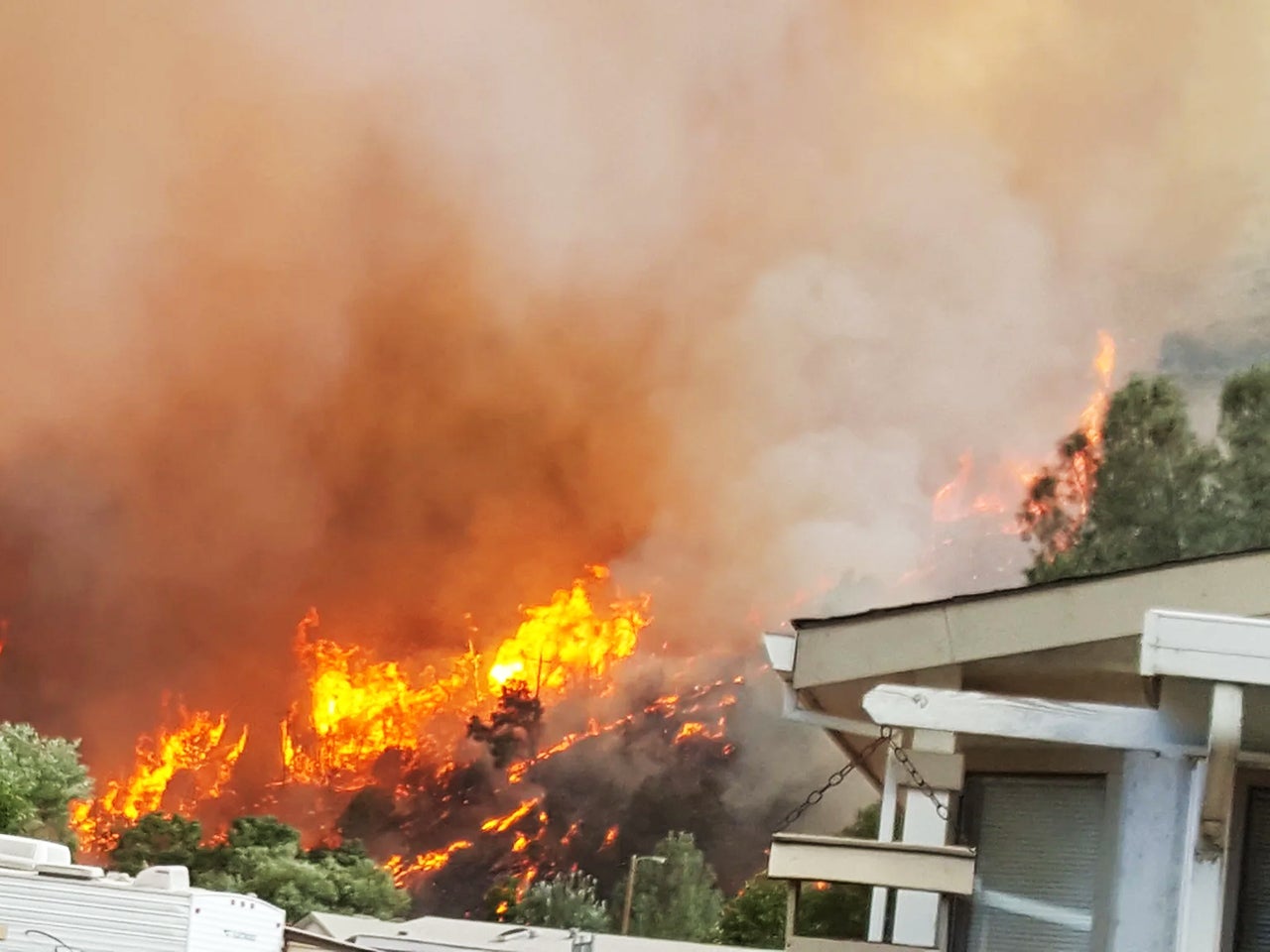
Since earth blocks aren’t currently in use, what can homeowners do to protect their homes from wildfire? The answer is defensible space zones.
Barbato describes the importance of defensible space to prevent wildfire devastation of homes in a UC Davis Research YouTube video about defensible space zones.
“Defensible space is the buffer between the building and the vegetation or any wild area that surrounds it,” Barbato said. “This space is needed to stop or at least slow the spread of wildfires. It helps protect houses from catching fire and also provides firefighters with a safe space from where they can defend buildings from fire.”
Defensible space zones
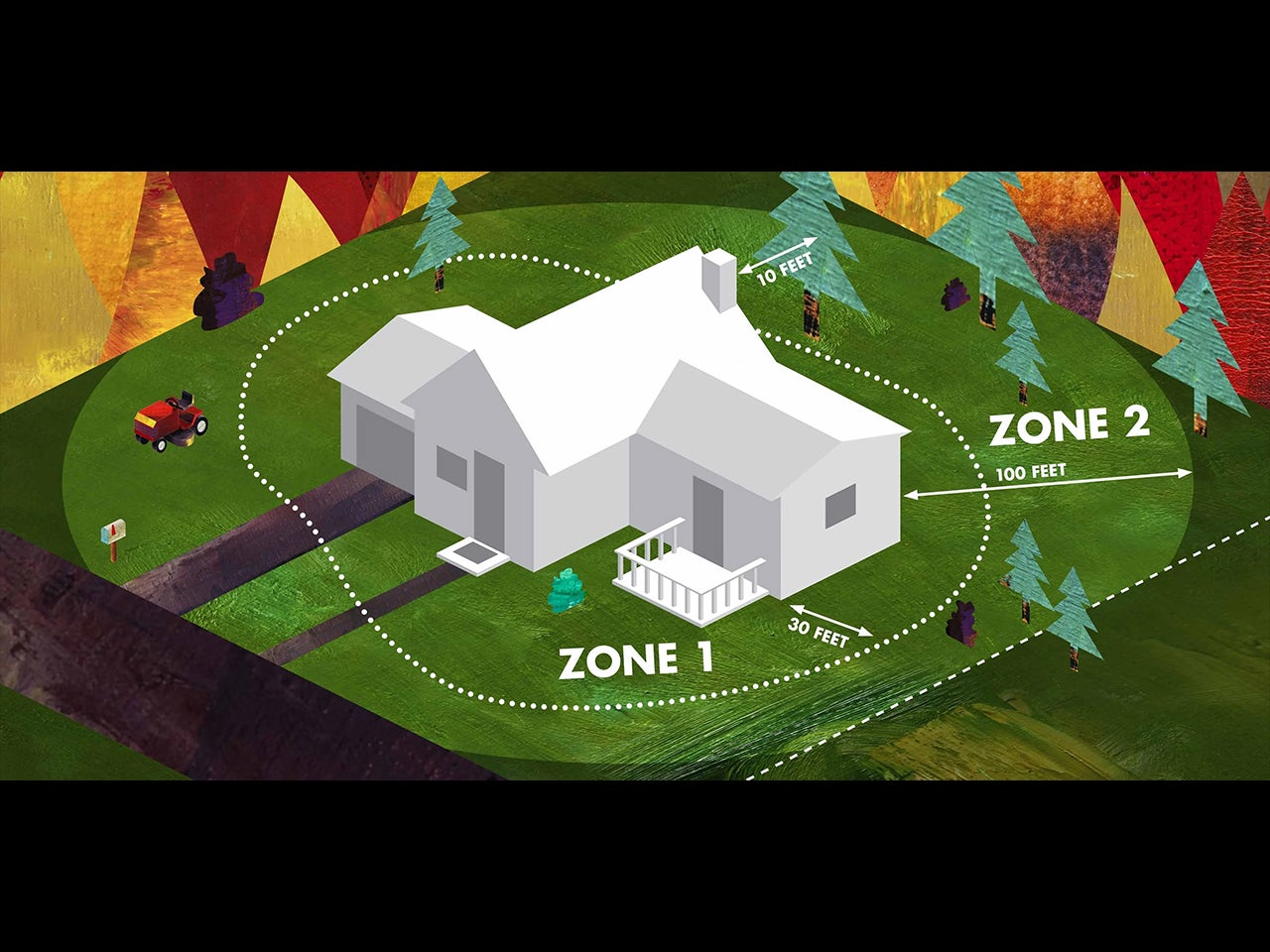
According to Barbato, “California’s building and fire codes require homeowners to create a defensible space buffer of 100 feet or up to the property line, whichever is closer.”
There are three zones that make up defensible space: zone 0, zone 1, and zone 2.
Zone 0: Ember resistant zone
Zone 0 extends up to five feet around your house, including the space under and around decks. This zone is not required by law, but it is the most important when it comes to defending your home from fire.
In zone 0, homeowners should:
- Use non-combustible paving materials.
- Have low-growing, non-wooded, properly watered and maintained plants.
- Limit outdoor furniture and other combustible materials on decks.
- Replace combustible fencing gates with a non-combustible alternative.
- Relocate garbage recycling containers, vehicles and other combustible items to outside the zone.
Zone 1: Lean, clean and green zone
Zone 1 extends up to 30 feet outside your house and is required by California law.
In zone 1, homeowners should:
- Remove all dead plants, grass, weeds, dry leaves and pine needles from the lawn, roof and rain gutters.
- Remove branches that hang over the roof.
- Keep branches 10 feet away from chimneys.
- Trim trees regularly to keep branches a minimum of 10 feet away from other trees.
- Relocate wood piles farther away from the house.
- Remove vegetation and items that could catch fire from around and under the decks, balconies, stairs and near windows.
- Create a separation between trees, shrubs and other items that could catch fire.
Zone 2: Reduced fuel zone
Zone 2 extends 100 feet from the house or to the property line, whichever is closer. It is required by California law.
In zone 2, homeowners should:
- Cut grass down to four to eight inches.
- Create horizontal and vertical spaces between grass, shrubs and trees.
- Remove as many fallen leaves, needles, cones and small branches as possible.
- Provide a minimum of 10 feet of clearance for all exposed wood piles in all directions.
More on fireproof houses
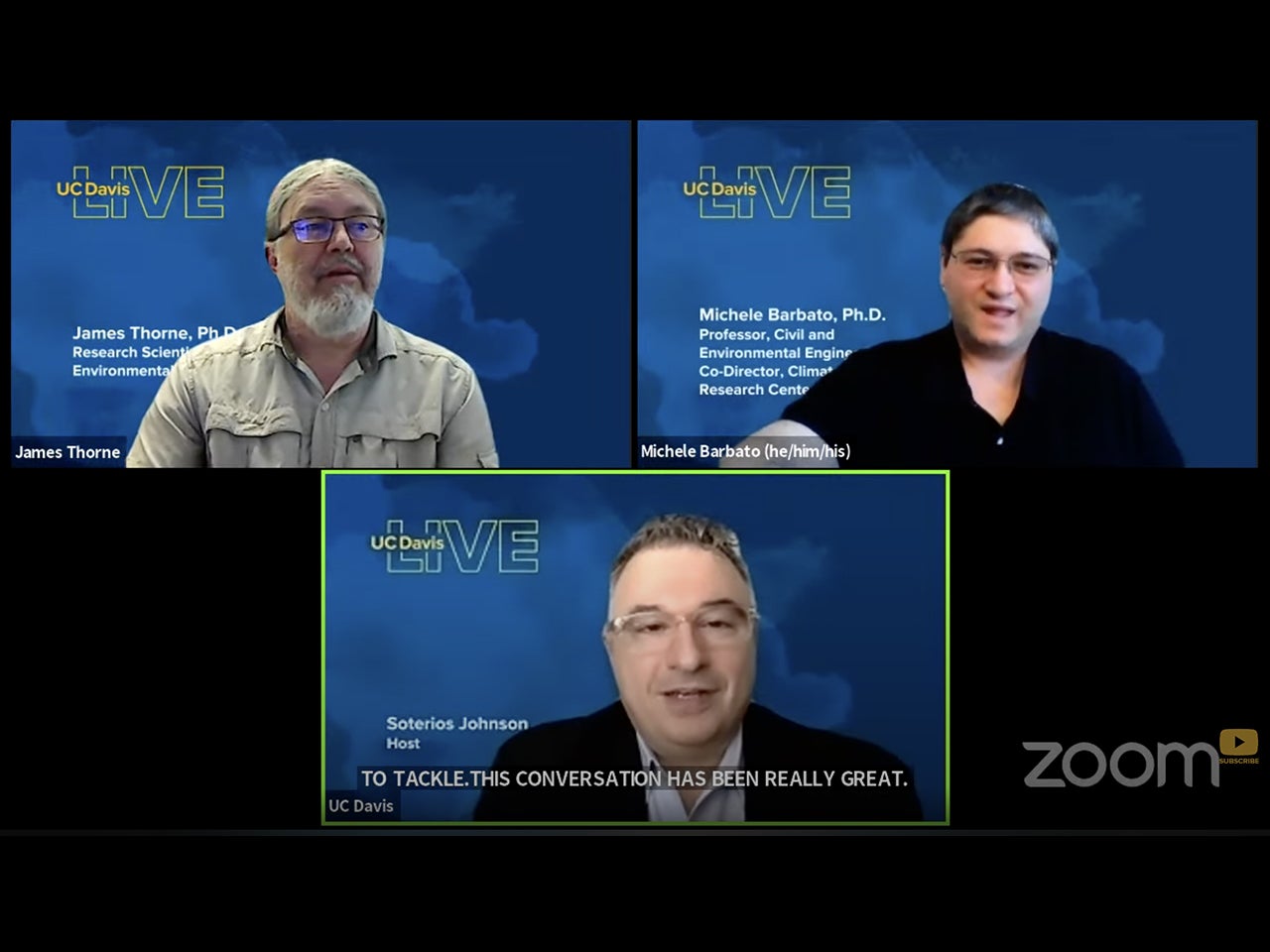
In a UC Davis LIVE video, Barbato answers frequently asked questions about fireproof housing along with Jim Thorne, a UC Davis research scientist in the Department of Environmental Science and Policy.
They discuss topics such as fire resistant paint, pyrocumulous clouds, and how wildfires affect the marine layer, the delta breeze, humidity, trees and climate change.
4. Monitor air quality
Even if you’re not near a wildfire, it’s a good idea to monitor your region’s air quality since wildfire smoke can travel over long distances.
Best air quality monitor
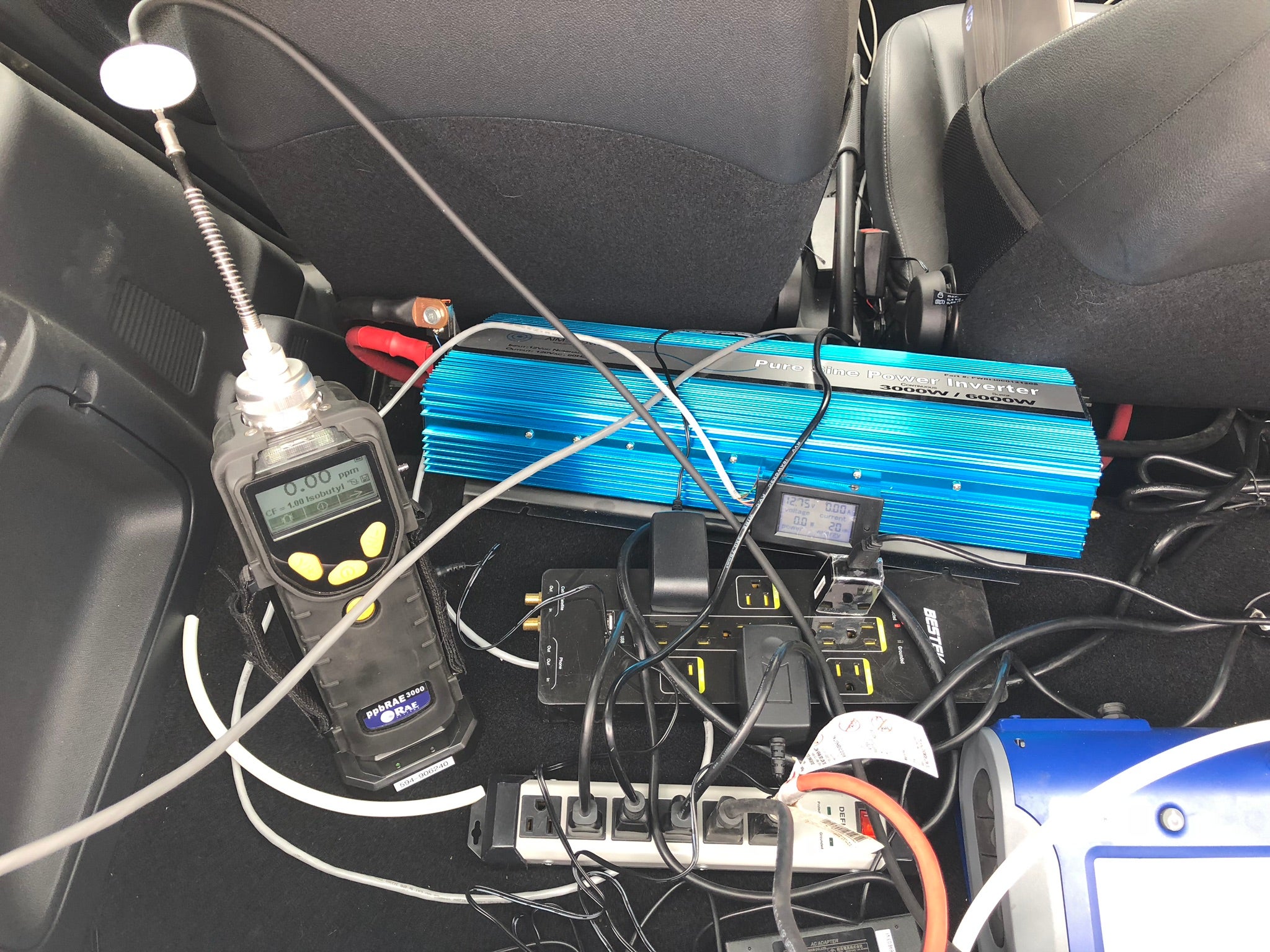
Luckily, it’s easy to monitor air quality through apps such as the EPA’s AirNow, which measures air quality using a scale called the U.S. Air Quality Index. The higher the number on the scale and the more purple it is, the worse the air quality.
How bad air quality affects cats and humans
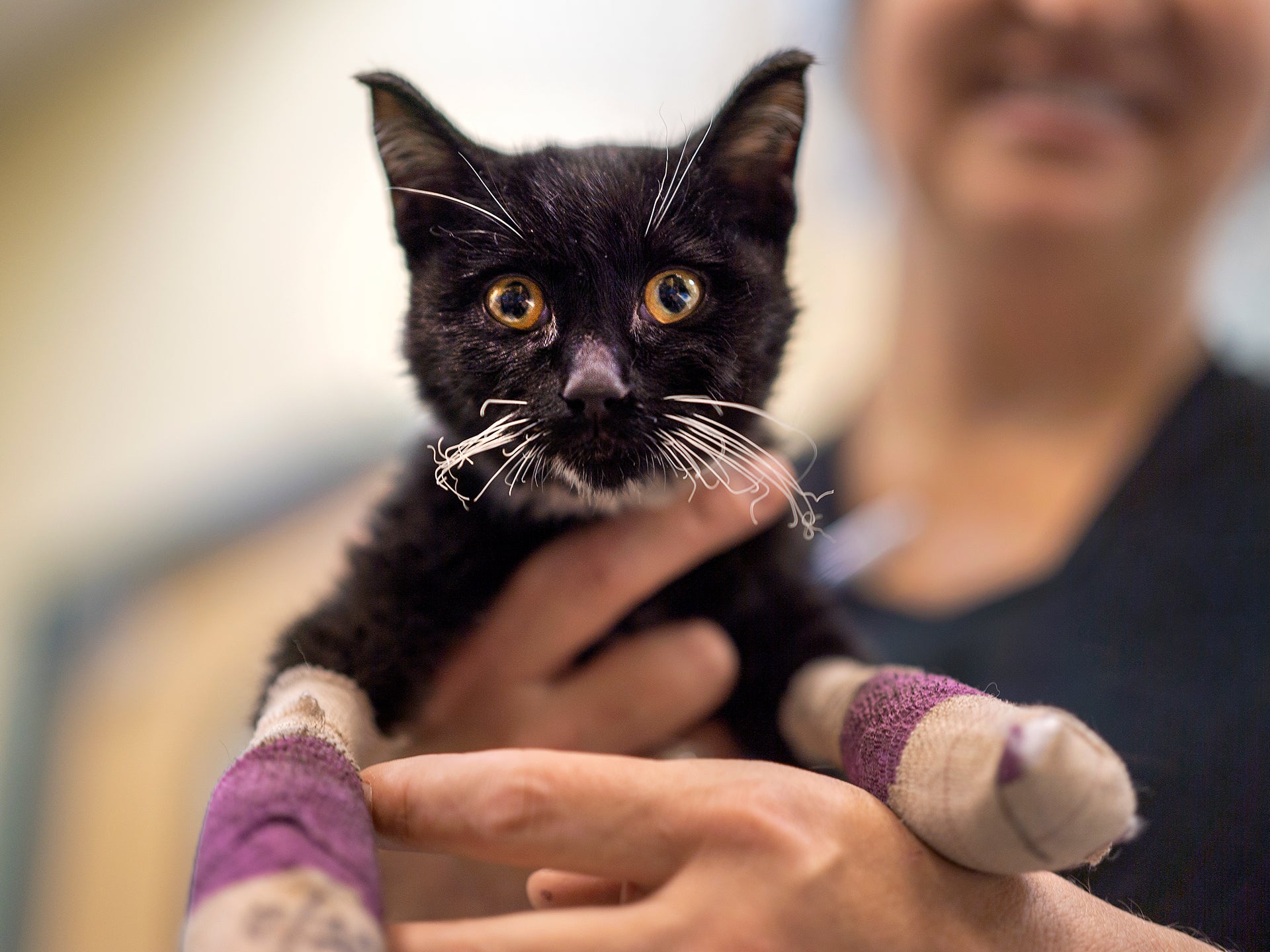
Bad air quality can cause serious negative health effects, especially when it comes to heart health. We know this because of cats.
In 2020, UC Davis Veterinary Medical Teaching Hospital did a study on 51 cats affected by wildfires. These cats had burns and suffered from smoke inhalation.
UC Davis veterinary researchers found that the fires had significant cardiovascular impacts. The cats had a much higher incidence of heart muscle thickening and blood clot formation. The cats that developed blood clots were at high risk of sudden death.
Humans experience similar effects. For those who suffer from burn injuries, if the burn is more severe, those people have a higher risk of cardiovascular changes.
Air toxicants
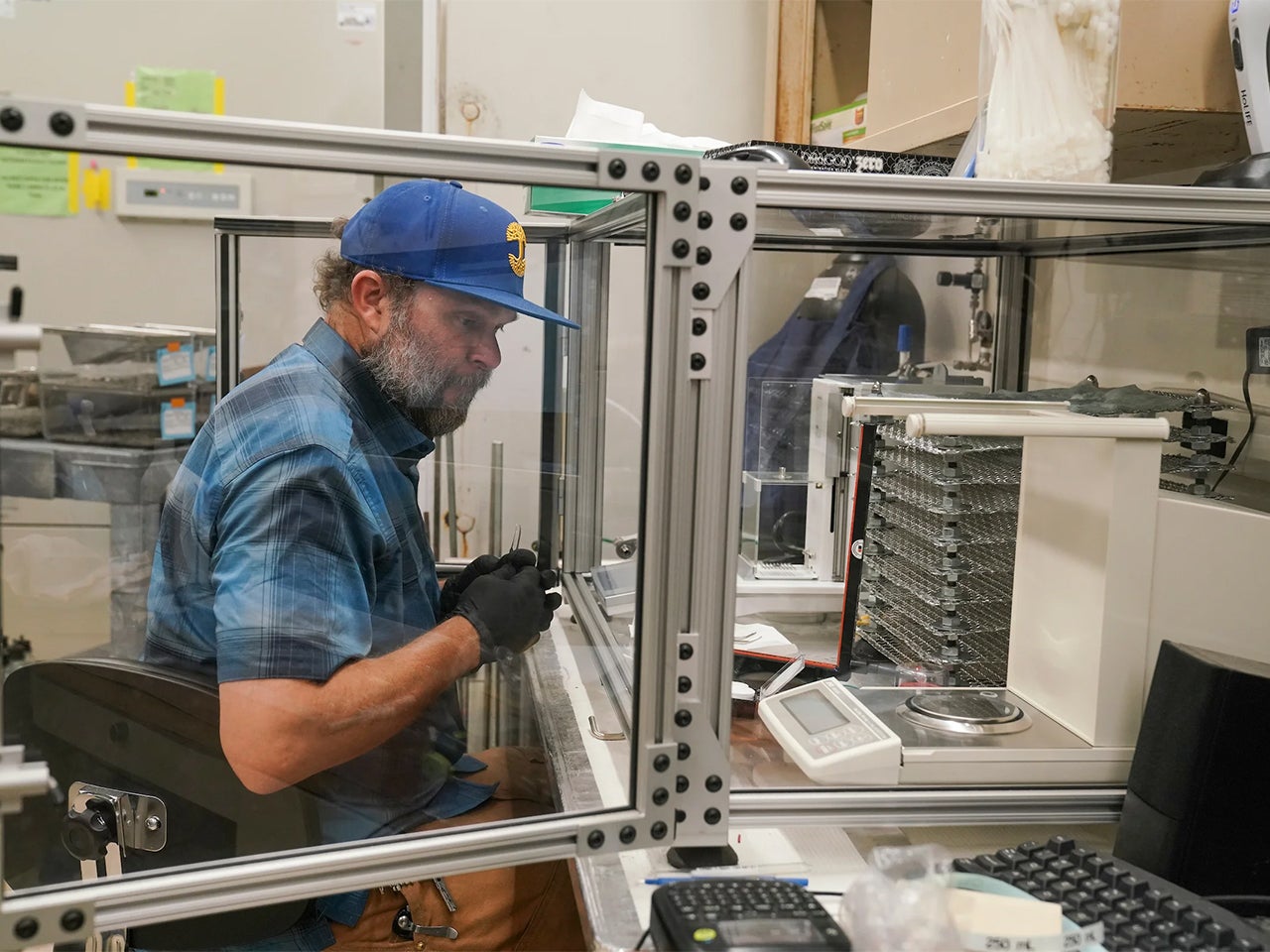
Substances released into the air are known as air pollutants, and toxic substances are known as toxicants.
Because the cats in the UC Davis research inhaled wildfire smoke in urban environments, it’s likely they also inhaled toxicants. More research is needed to determine how these toxicants affect cats and humans.
Anthony Wexler, a distinguished professor and the director of the UC Davis Air Quality Research Center, created a new approach to monitor air quality during wildfires that takes urban toxicants into account.
“In houses, there’s plastic, metal, solvents, paint, pesticides, cars in the garage made up of rubber and metal, and everything else. And in these fires, it all gets reduced to nothing,” said Wexler. “Well, nothing plus smoke,” he added.
Wexler teamed up with Keith Bein, an associate professional researcher also at the Air Quality Research Center, to use a mobile machine to measure air quality in urban areas.
Unfortunately, researchers are not given access to areas affected by wildfire, meaning they have not been able to gather enough data. But they are working with Cal Fire to find a safe way to gather data when another wildfire eventually strikes.
5. Find ways to stay positive when feeling climate anxiety
Eco-anxiety — also known as climate anxiety — was first coined in 2011 by Glenn Albrecht, honorary fellow in the School of Geosciences of the University of Sydney.
According to Albrecht, eco-anxiety refers to a chronic fear of environmental doom. It can also refer to feelings of anxiety and depression caused by thinking about the significant, negative effects of climate change.
Climate despair
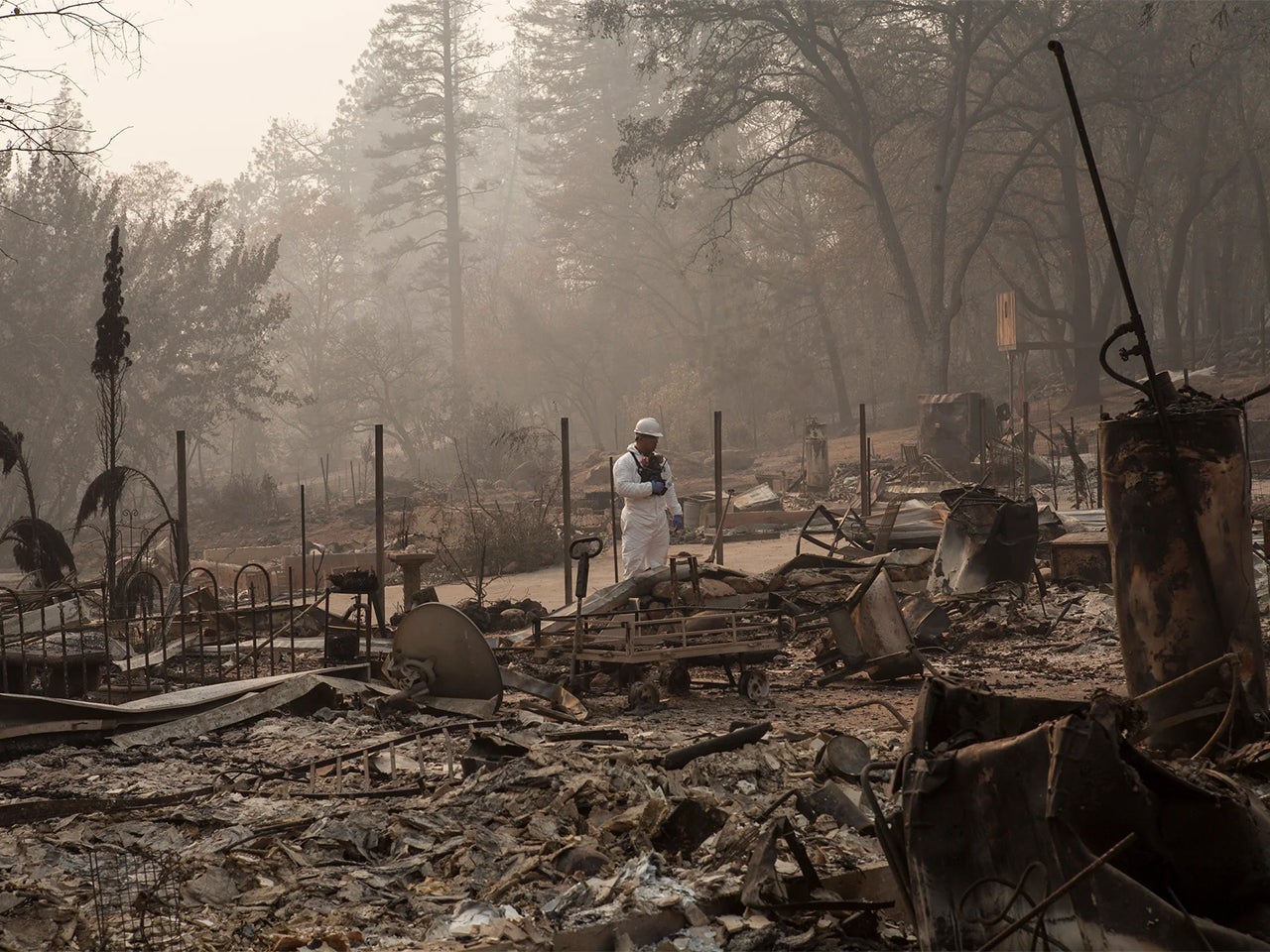
As a wildfire chaser, Bein is familiar with the physical feelings that come from wildfire — irritation of the eyes, nose and throat — and the emotional ones.
During the 2018 Camp Fire, one of the most deadliest and destructive wildfires in California’s history, Bein took his mobile air quality rig to Paradise and witnessed the devastation of the town where many of his friends lived.
“I had about four or five people staying with me after they lost their homes,” he said. “You see the drama in them and the way it’s impacting them, and you don’t really know how to act or what to say.”
He described the despair that comes with his line of work and how it’s made worse by other depressing news.
“You know, when you’re in the middle of this crisis layer cake, it all compresses down on you, and it feels very overwhelming,” he said.
Finding hope in eco-anxiety
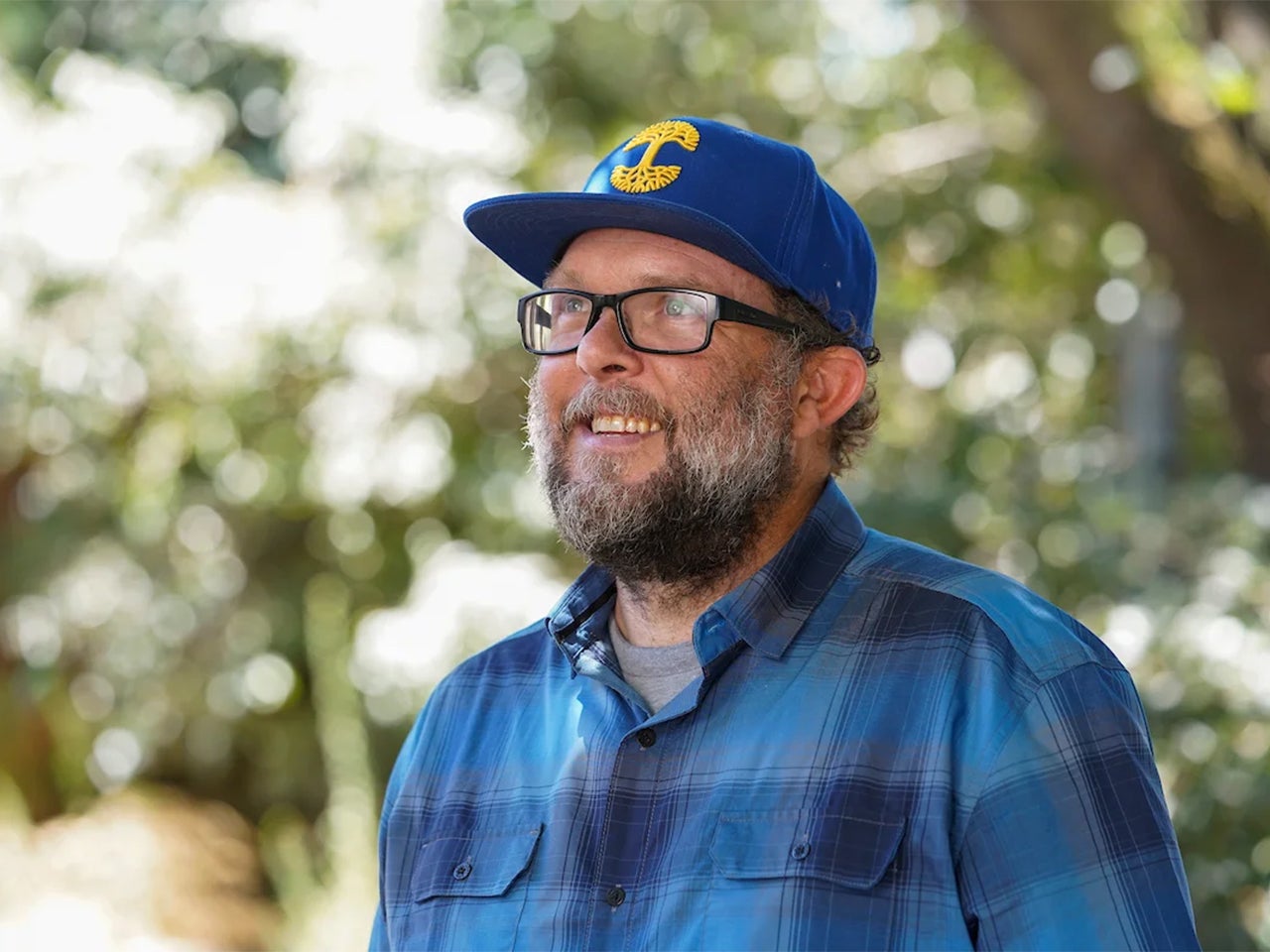
“But the hope is in the action,” Bein added. “The hope is in the small steps you can take. Recognizing that you can’t change the world, but do the things you can do.”
Adams feels the same way. She remains committed to her work as an environmental scientist, teaching students to use fire as a tool for restoration.
Some of the students in her “Keepers of the Flame” class were displaced from wildfire and still experience climate anxiety.
“Their feelings are very real, they are valid, and I understand,” she said. “For me, I haven’t reached the point of feeling like there might not be a future or a California.”
She looks to the resiliency of her Indigenous ancestors for motivation and hope.
“They never gave up. They withstood colonization and the collapse of their worlds. Who am I to give up when they didn’t? They didn’t give up on their youth or their future, and neither will I,” Adams said.
Climate justice and social justice
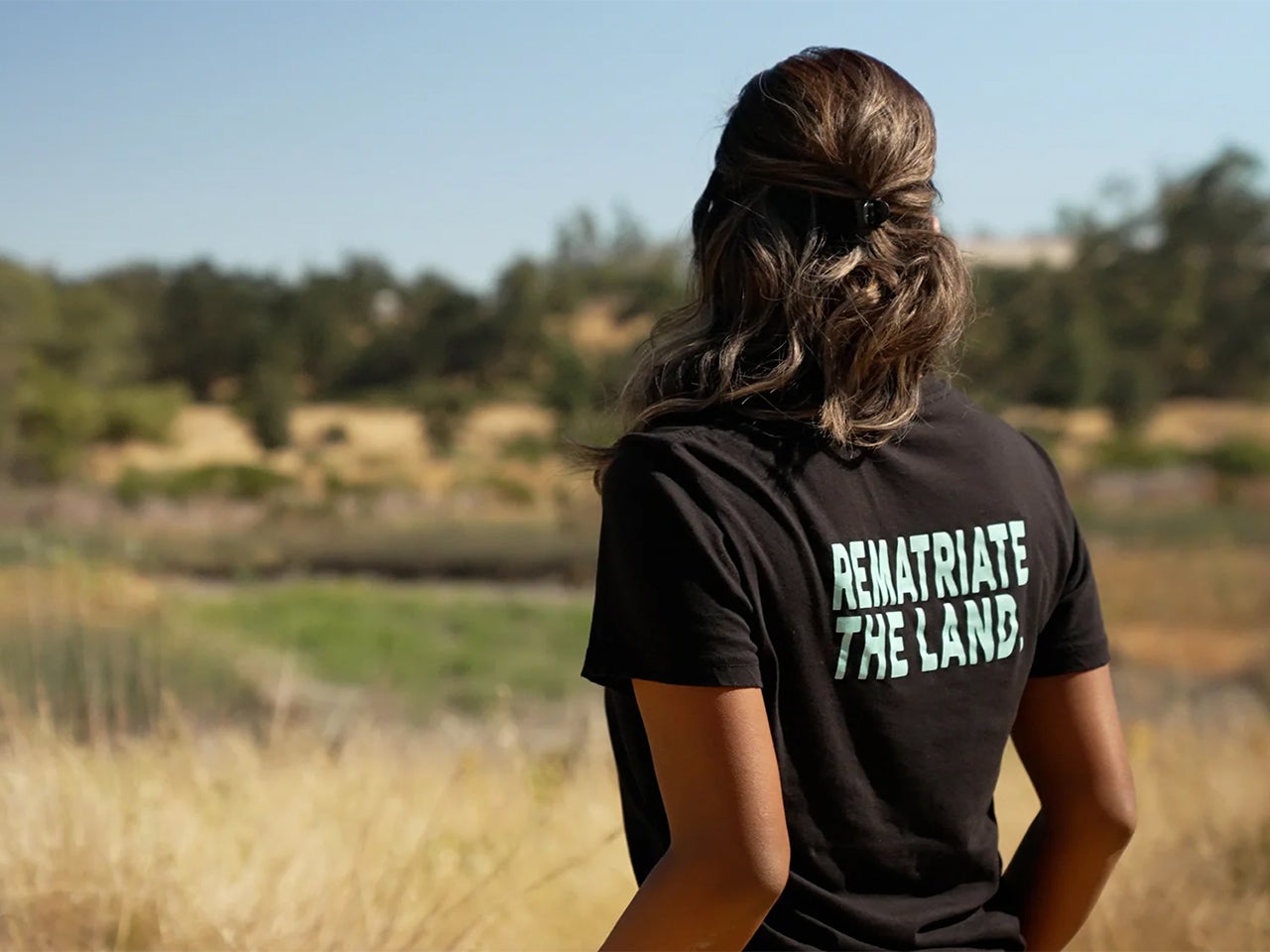
Both Bein and Adams are encouraged by their students’ passion about climate change.
“A lot of youngsters are forming huge advocacy organizations and really pushing,” Bein said. “They’re saying ‘I don’t want you to have hope. I want you to panic and act like your house is on fire because it is on fire.’ I really love that energy and motivation.”
When she was growing up, Adams heard stories from relatives about her people fighting for change even if they might never see it in their lifetimes. Their fight was for their children and grandchildren.
She sees this same passion to fight for climate justice in the eyes of her students and those from underrepresented communities.
“There’s such momentum in social and environmental activism right now,” Adams said. “Our youth are taking on the challenge of climate change. They inherited this, but they’re savvy and smart. They’re calling out racial injustices. They are very prepared to take on this fight.”
More resources
To learn even more about wildfires and how you can prepare for them and help prevent them, there are many other UC Davis resources available and are all backed by our world class research in science.
View more wildfire preparation resources
